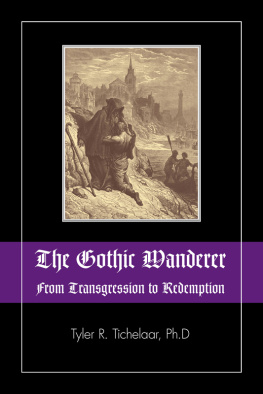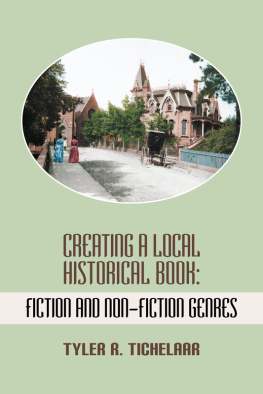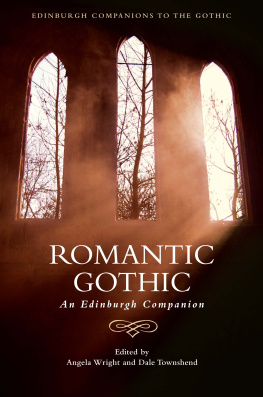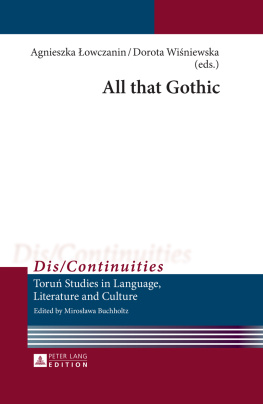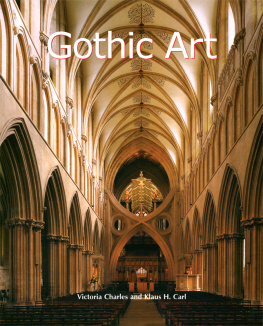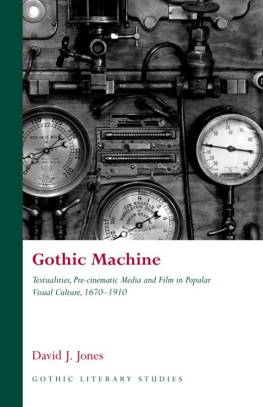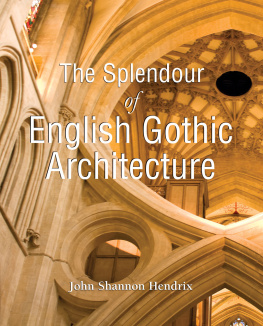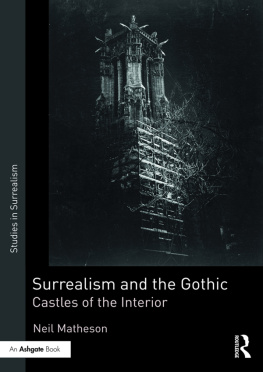Tyler R. Tichelaar - The Gothic Wanderer: From Transgression to Redemption; Gothic Literature from 1794 - Present
Here you can read online Tyler R. Tichelaar - The Gothic Wanderer: From Transgression to Redemption; Gothic Literature from 1794 - Present full text of the book (entire story) in english for free. Download pdf and epub, get meaning, cover and reviews about this ebook. year: 2012, publisher: Loving Healing Press Inc., genre: Home and family. Description of the work, (preface) as well as reviews are available. Best literature library LitArk.com created for fans of good reading and offers a wide selection of genres:
Romance novel
Science fiction
Adventure
Detective
Science
History
Home and family
Prose
Art
Politics
Computer
Non-fiction
Religion
Business
Children
Humor
Choose a favorite category and find really read worthwhile books. Enjoy immersion in the world of imagination, feel the emotions of the characters or learn something new for yourself, make an fascinating discovery.
- Book:The Gothic Wanderer: From Transgression to Redemption; Gothic Literature from 1794 - Present
- Author:
- Publisher:Loving Healing Press Inc.
- Genre:
- Year:2012
- Rating:4 / 5
- Favourites:Add to favourites
- Your mark:
The Gothic Wanderer: From Transgression to Redemption; Gothic Literature from 1794 - Present: summary, description and annotation
We offer to read an annotation, description, summary or preface (depends on what the author of the book "The Gothic Wanderer: From Transgression to Redemption; Gothic Literature from 1794 - Present" wrote himself). If you haven't found the necessary information about the book — write in the comments, we will try to find it.
The Gothic Wanderer Rises Eternal in Popular Literature
From the horrors of sixteenth century Italian castles to twenty-first century plagues, from the French Revolution to the liberation of Libya, Tyler R. Tichelaar takes readers on far more than a journey through literary history. The Gothic Wanderer is an exploration of mans deepest fears, his eff orts to rise above them for the last two centuries, and how he may be on the brink finally of succeeding.
Tichelaar examines the figure of the Gothic wanderer in such well-known Gothic novels as The Mysteries of Udolpho, Frankenstein, and Dracula, as well as lesser known works like Fanny Burneys The Wanderer, Mary Shelleys The Last Man, and Edward Bulwer-Lyttons Zanoni. He also finds surprising Gothic elements in classics like Dickens A Tale of Two Cities and Edgar Rice Burroughs Tarzan of the Apes. From Matthew Lewis The Monk to Stephenie Meyers Twilight, Tichelaar explores a literary tradition whose characters refl ect our greatest fears and deepest hopes. Readers will find here the revelation that not only are we all Gothic wanderersbut we are so only by our own choosing.
Acclaim for The Gothic Wanderer
The Gothic Wanderer shows us the importance of its title figure in helping us to see our own imperfections and our own sometimes contradictory yearnings to be both unique and yet a part of a society. The reader is in for an insightful treat.
Diana DeLuca, Ph.D. and author of Extraordinary Things
Make no mistake about it, The Gothic Wanderer is an important, well researched and comprehensive treatise on some of the worlds finest literature.
Michael Willey, author of Ojisan Zanoni
About the Author
Tyler R. Tichelaar holds a Ph.D. in Literature from Western Michigan University. He has lectured on writing and literature at Clemson University, the University of Wisconsin, and the University of London. Tichelaar is the author of numerous historical novels, including The Marquette Trilogy (composed of Iron Pioneers, The Queen City, and Superior Heritage) the award-winning Narrow Lives, and Spirit of the North: a paranormal romance. His other scholarly works include King Arthurs Children: a Study in Fiction and Tradition
Foreword by Marie Mulvey-Roberts, Ph.D.
Learn more at www.GothicWanderer.com
From Modern History Press www.ModernHistoryPress.com
Literary Criticism : Gothing & Romance
Literary Criticism : European - General
Tyler R. Tichelaar: author's other books
Who wrote The Gothic Wanderer: From Transgression to Redemption; Gothic Literature from 1794 - Present? Find out the surname, the name of the author of the book and a list of all author's works by series.

